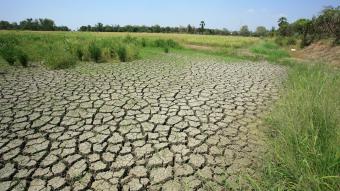Climate Change
Recent Activity
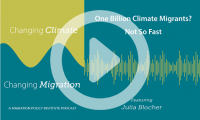
There are a lot of predictions about how many people will migrate in response to climate change. Depending on where you look, the next few decades could see hundreds of millions—or even more than 1 billion—people pick up and move.
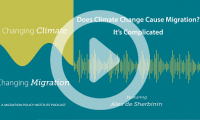
The relationship between climate change and migration is long and complex. Human civilizations have been affected by environmental conditions for centuries, but we should be wary of arguments that huge numbers of people are inevitably destined to migrate in response to specific climate threats.
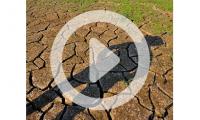
This MPI Europe discussion explored different migration policy options related to climate adaptation and the evolving landscape of climate finance tools. Speakers also examined what funding gaps and opportunities exist for collaboration with partner countries and what funding instruments might address the most pressing needs.

In his first public address during his inaugural formal visit to Washington, DC, IOM Director General António Vitorino discussed his vision for the agency, reforms in the UN system designed to address migration matters better, and the operational steps IOM is taking to respond to forced migration and displacement in hotspots around the world.
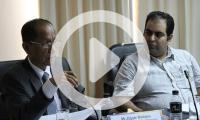
This MPI event, in partnership with the International Organization for Migration (IOM), discusses the critical issue of climate-related displacement in the Asia-Pacific region, focusing on the vulnerability of environmental migrants and how the international legal framework can better ensure their protection.


